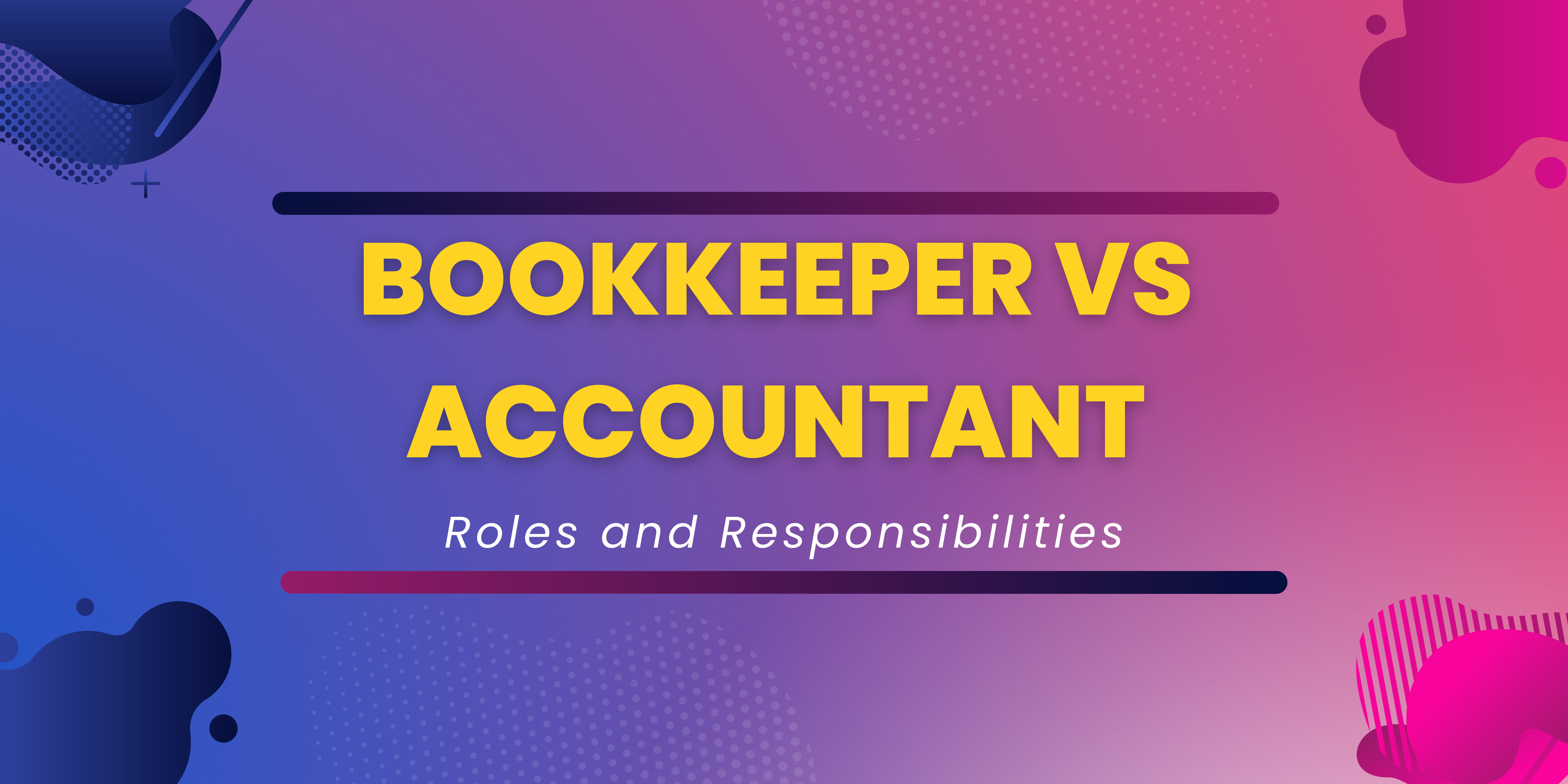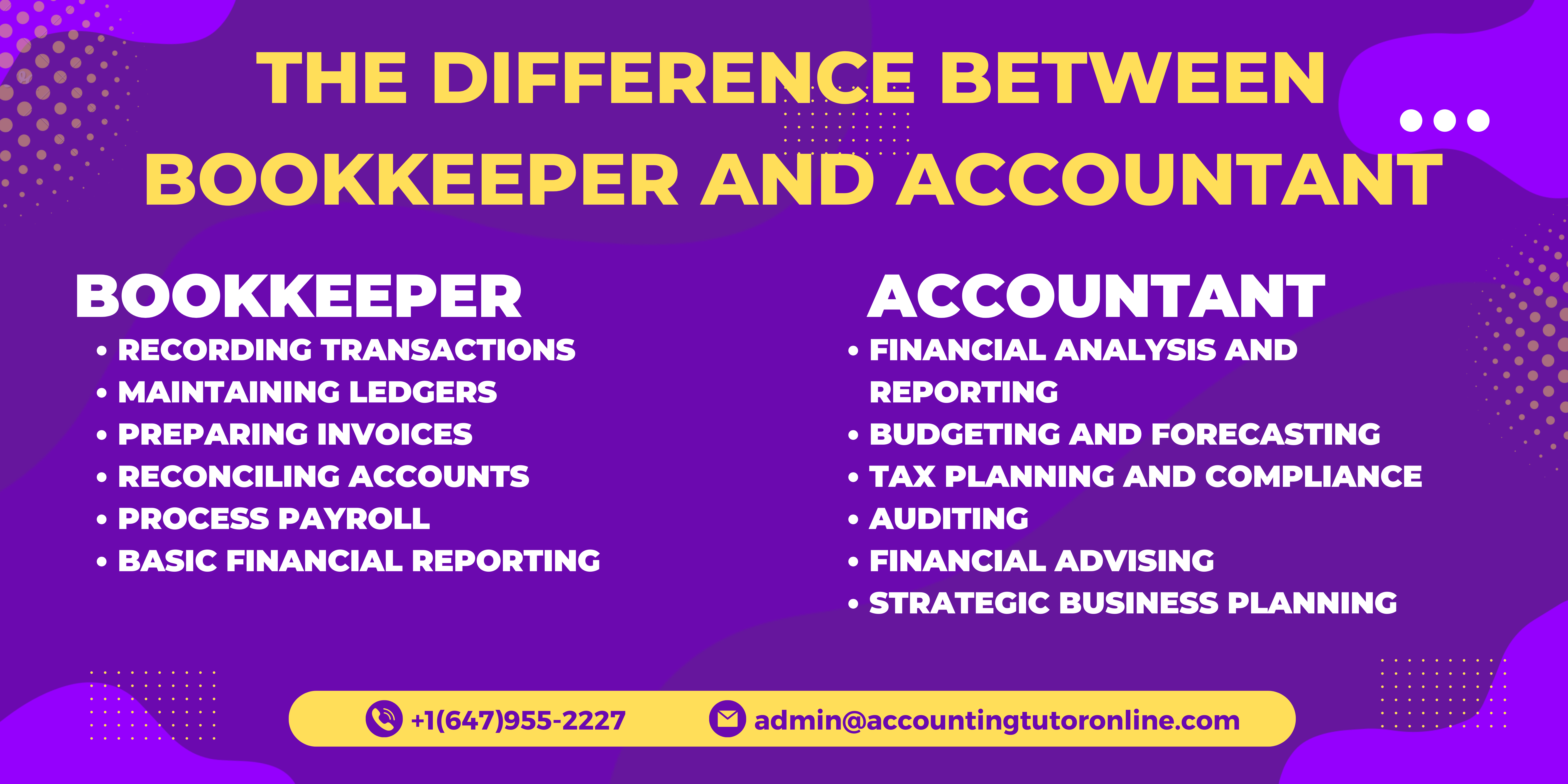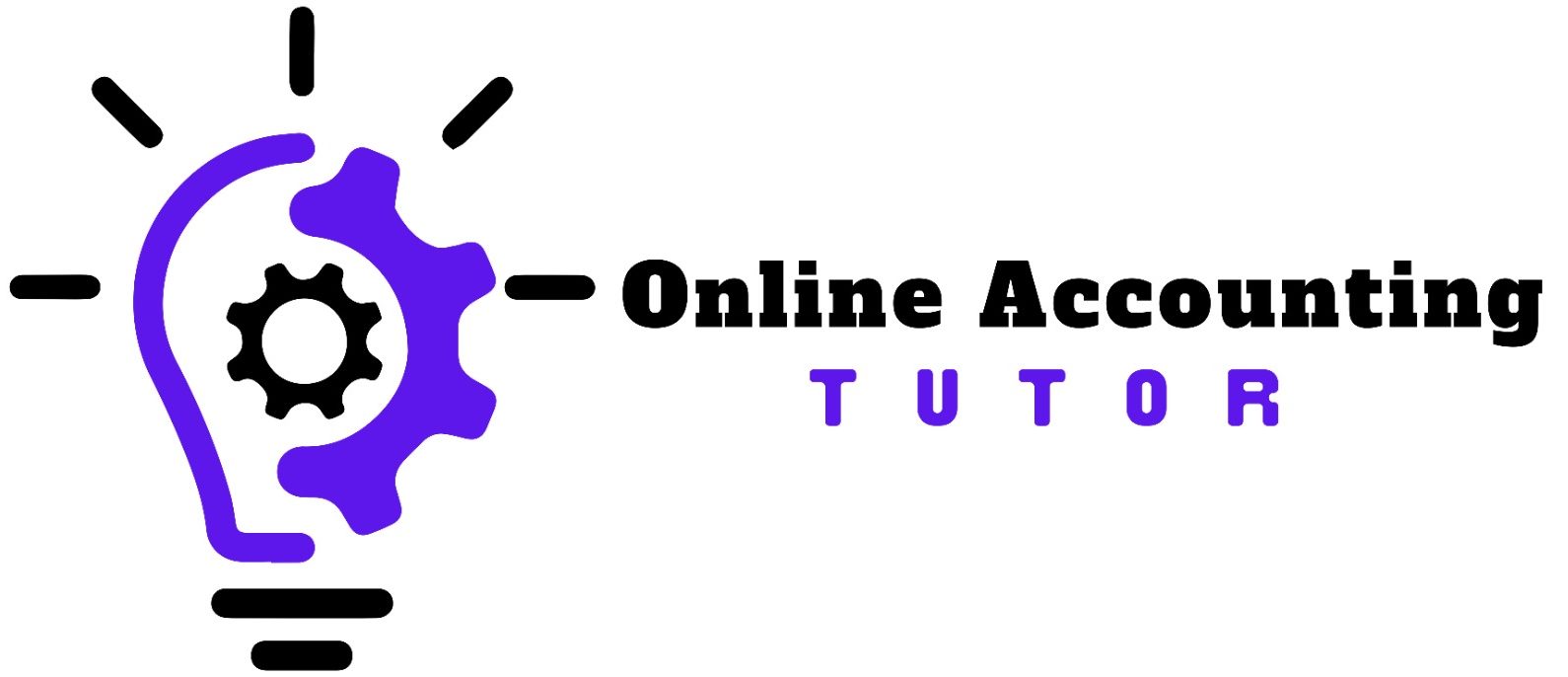
- Accounting Tutor
- January 16, 2024
Who is a Bookkeeper
A bookkeeper is a professional who is responsible for maintaining the financial records of a business. Their primary role is to record all financial transactions, including purchases, sales, receipts, and payments, in a systematic manner. The key functions of a bookkeeper include:
Recording Transactions
-
- Bookkeepers perform the fundamental task of recording financial transactions including sales, purchases, payments, and receipts in the company’s ledger.
- This involves not just entering data, but categorizing each transaction appropriately to ensure accurate financial reporting.
- They must be detail-oriented to accurately capture the nature and amount of each transaction, ensuring a reliable financial record.
Maintaining Ledgers
-
- Keeping ledgers up-to-date is a critical task for bookkeepers. This involves posting all financial transactions to the general ledger, which serves as the central repository for accounting data.
- They need to ensure that the ledger reflects accurate and current financial information, as it forms the basis for further financial analysis and reporting.
- Accuracy in ledger maintenance is key to preventing financial discrepancies and errors in accounting records.
Preparing Invoices
-
- Bookkeepers handle the creation and issuance of invoices, a crucial part of managing accounts receivable.
- They ensure that invoices are accurate, reflect the correct amounts for products or services provided, and are sent promptly to customers.
- Managing invoices also involves tracking payments received and following up on overdue accounts, which is essential for maintaining healthy cash flow.
Reconciling Accounts
-
- Reconciliation is a process where bookkeepers match the company’s records against bank statements or other external financial records to verify accuracy.
- This task is vital for identifying and correcting discrepancies, preventing potential financial errors, and ensuring that records accurately reflect the business’s financial status.
- Regular account reconciliation helps in detecting fraud, preventing overdrafts, and understanding the company’s real-time financial position.
Handling Payroll
-
- In many small to medium-sized businesses, bookkeepers may also manage payroll functions. This includes calculating salaries, deductions, and taxes for each employee.
- They ensure timely and accurate payroll processing, adherence to employment laws and tax regulations, and maintain detailed records for each payroll period.
- Handling payroll also involves preparing and issuing employee paychecks or managing direct deposits, and filing required payroll tax documents.
A bookkeeper does not typically require a professional certification, and their work is often supervised by an accountant. We offer online tutoring in bookkeeping, please book a lesson with us and get better with your Bookkeeping. In addition, as a bookkeeper you will need knowledge in operating the accounting system, we have QuickBooks online tutoring to help you be on top.

Who is an Accountant
An accountant is a professional who handles the broader scope of financial management and planning for a business. Their role encompasses not only the recording of financial transactions but also the interpretation, classification, analysis, reporting, and summarization of financial data. Key functions of an accountant include:
Financial Analysis and Reporting
-
- Accountants scrutinize financial data to prepare comprehensive reports, which could include balance sheets, income statements, and cash flow statements.
- They analyze financial trends and patterns to provide actionable insights into the company’s financial health, helping stakeholders make informed decisions.
- This analysis is essential for identifying areas of strength, potential risks, and opportunities for financial improvement.
Budgeting and Forecasting
-
- Accountants are instrumental in the budgeting process, estimating future financial needs and allocating resources accordingly.
- They use historical data and market trends to forecast future revenues and expenses, aiding in long-term strategic planning.
- Effective budgeting and forecasting help businesses plan for growth, manage resources efficiently, and prepare for future financial challenges.
Tax Planning and Compliance
-
- An accountant ensures that a business adheres to tax laws and regulations. They prepare and file necessary tax documents, including returns, while seeking ways to minimize tax liabilities legally.
- They stay updated with changing tax laws and advise the business on the implications of these changes.
- Their expertise in tax planning is crucial for optimizing a company’s tax strategy and avoiding legal issues.
Auditing
-
- Accountants may conduct internal audits to ensure the accuracy and integrity of financial records. They check for compliance with accounting standards and internal policies.
- In external auditing, they examine financial statements to provide an independent opinion on their accuracy and fairness.
- Auditing helps in identifying inefficiencies, fraudulent activities, and areas needing improvement in financial processes.
Financial Advising:
-
- Accountants offer guidance on various financial matters including cost reduction, revenue enhancement, and profit maximization strategies.
- They analyze financial reports and market conditions to provide tailored advice for business growth and sustainability.
- Their financial insights are crucial for making strategic business decisions, managing risks, and optimizing financial performance.
Strategic Business Planning
-
- Accountants play a key role in formulating business strategies by interpreting financial data and market trends.
- They help in setting long-term business goals and developing plans to achieve these goals effectively.
- Their input is vital for identifying new business opportunities, investment strategies, and areas for expansion or diversification.
With their comprehensive understanding of financial principles and strategic insight, accountants are indispensable in guiding businesses toward financial stability and growth. Their expertise is not just in handling numbers but in transforming those numbers into meaningful strategies for business success.
Accountants typically hold a bachelor’s degree in accounting or a related field, and many also achieve professional certifications such as Certified Public Accountant (CPA) or Chartered Accountant (CA).
In essence, while a bookkeeper is primarily responsible for accurately recording financial transactions, an accountant provides a higher level of expertise by interpreting financial data for business decision-making and strategic planning.
Online Tutoring
We offer online tutoring where we cover topics from bookkeeping and tax filing to launching a successful business.
Check out the Accounting Tutor Online Subjects page for more information.
"Are you tired of struggling in accounting class? Let us make accounting easy and enjoyable for you."







